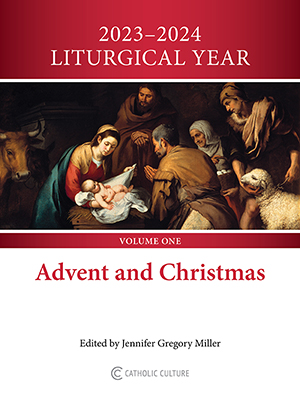Catholic World News
Pope calls for moral education of youth in annual message for World Day of Peace
December 16, 2011
In his annual message for the World Day of Peace, Pope Benedict XVI highlights the role that idealistic young people can play in building peace in the future, and stresses the importance of education in realizing that goal. Young people today are frustrated by the injustices they see in the world, the Pope writes. They need guidance as they mobilize to remedy those problems. In educating young people, the Pontiff says, “today more than ever we need authentic witnesses, and not simply people who parcel out rules and facts.” The World Day of Peace is observed each year on January 1, and Pope Benedict will formally present his message on that day to the diplomats accredited to the Holy See. But the Vatican released the full text of the papal message on December 16, at a news conference chaired by Cardinal peter Kodwo Turkson, the president of the Pontifical Council for Justice and Peace. The Pope’s message, entitled Educating Young People in Justice and Peace, concentrates on the task of education for the rising generation. In the process, the Holy Father emphasizes moral education, and—reprising a common theme of his pontificate—warns against the dominance of relativism, particularly in education. The papal message contains a strong argument for recognition of the natural law, coupled with a . “Deep within his conscience, man discovers a law that he did not lay upon himself, but which he must obey,” the Pope writes. He continues:Its voice calls him to love and to do what is good, to avoid evil and to take responsibility for the good he does and the evil he commits. Thus, the exercise of freedom is intimately linked to the natural moral law, which is universal in character, expresses the dignity of every person and forms the basis of fundamental human rights and duties: consequently, in the final analysis, it forms the basis for just and peaceful coexistence. The right use of freedom, then, is central to the promotion of justice and peace, which require respect for oneself and others.Pope Benedict confirms that Church’s teaching that parents are the primary educators:
Where does true education in peace and justice take place? First of all, in the family, since parents are the first educators. … The family is the first school in which we are trained in justice and peace.However, parents may find it difficult to carry out that important role today, the Pontiff says. “We are living in a world where families, and life itself, are constantly threatened and not infrequently fragmented,” he writes. He calls upon government leaders to give families the support they need. The main thrust of the papal message, however, centers on the need to recognize moral law. The Pontiff argues that a respect for that moral law is a primary goal of any education:
Man is a being who bears within his heart a thirst for the infinite, a thirst for truth--a truth which is not partial but capable of explaining life's meaning--since he was created in the image and likeness of God. ... Hence the first step in education is learning to recognize the Creator's image in man, and consequently learning to have a profound respect for every human being.Education should prepare young people to live in freedom as adults, the Pope says. Here too, moral and religious education is crucial. He explains: “Only in relation to God does man come to understand also the meaning of human freedom.” The Pope draws a sharp contrast between proper education in morality and a secular approach, which tends to “detach the concept of justice from its transcendent roots.” When education is oriented toward God, and justice is seen in terms of moral law, the conscience speaks to man in a way that promotes peace, the Pope argues:
Its voice calls him to love and to do what is good, to avoid evil and to take responsibility for the good he does and the evil he commits. Thus, the exercise of freedom is intimately linked to the natural moral law, which is universal in character, expresses the dignity of every person and forms the basis of fundamental human rights and duties: consequently, in the final analysis, it forms the basis for just and peaceful coexistence. The right use of freedom, then, is central to the promotion of justice and peace, which require respect for oneself and others.
“Peace is not merely the absence of war,” Pope Benedict reminds his readers as he nears the conclusion of his message. Genuine peace, he writes, is both a gift from God and a product of human endeavor. “In order to be true peacemakers,” he says, “we educate ourselves in compassion, solidarity, working together, fraternity, in being active within the community.”
Free eBook:

|
| Free eBook: Liturgical Year 2023-2024, Vol. 1 |
For all current news, visit our News home page.
Further information:
- Educating Young People in Justice and Peace (VIS)
- Educating Young People in Justice and Peace (full text from Vatican)
- Youth can offer new hope to the world (Vatican Radio)
- It is urgent to educate young people in justice and peace (L’Osservatore Romano)
- The realistic confidence of Pope Benedict (L’Osservatore Romano)
- Pope’s message to young people: Your commitment is the solution to the crisis (Vatican Insider)
- Pope emphasizes human dignity (AP)
- Without God there is no peace. The end of relativism and the Christianity of "values" (AsiaNews)
Sound Off! CatholicCulture.org supporters weigh in.
All comments are moderated. To lighten our editing burden, only current donors are allowed to Sound Off. If you are a current donor, log in to see the comment form; otherwise please support our work, and Sound Off!







